For kitchen professionals, the phenomenon of cast iron smoking more on induction cooktops can be both puzzling and frustrating. Many chefs and home cooks alike appreciate the durability and heat retention of cast iron, but when it comes to induction cooking, the issue of smoking can lead to concerns about both flavor and safety. This article delves into the reasons behind this occurrence, offering insights and solutions that are particularly relevant to those who work in professional kitchens.
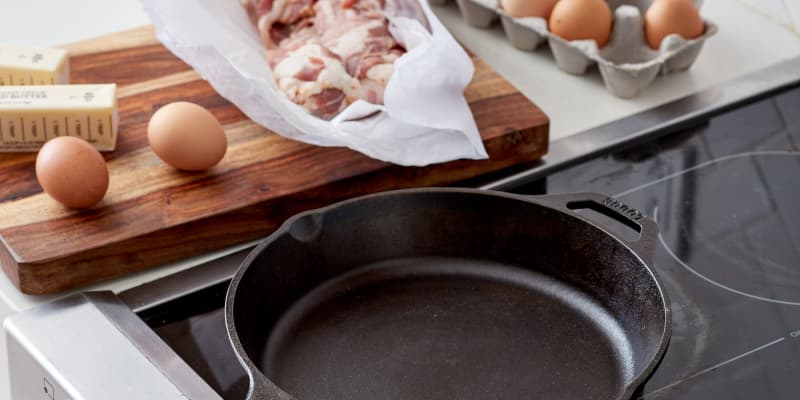
The Science Behind Induction Cooking
To understand why cast iron smokes more on induction, it's crucial to first grasp how induction cooking works. Unlike traditional gas or electric stovetops, induction cooktops use electromagnetic fields to heat cookware directly. This method is highly efficient, as it minimizes energy loss and allows for precise temperature control. However, it also means that the cookware itself must be magnetic to work with induction technology, making cast iron a popular choice due to its ferromagnetic properties.
Why Cast Iron Smokes: Key Factors
The primary reason cast iron smokes more on induction cooktops lies in the rapid heating and high temperatures that can be achieved. Induction technology heats the metal quickly, which can cause the seasoning on the cast iron surface to reach its smoking point faster than on other types of cooktops. In a professional kitchen, where speed and efficiency are paramount, this can lead to unexpected smoking and even burning if not carefully monitored.
Temperature Control Challenges
While induction cooktops are known for their precise temperature control, the rapid increase in temperature can be a double-edged sword. If a cast iron pan is heated too quickly, the oil used for seasoning can begin to break down and smoke. This is especially true when the pan is not evenly coated or if the oil used has a low smoke point.
Uneven Heating
Another reason why cast iron smokes more on induction is due to uneven heating. While induction cooktops provide quick heating, the heat distribution can sometimes be inconsistent, especially if the cooktop has a smaller heating element or if the pan is not perfectly flat. This uneven heating can cause certain areas of the pan to overheat and smoke while others remain cooler.
Solutions to Minimize Smoking
For kitchen professionals seeking to mitigate smoking issues with cast iron on induction cooktops, several strategies can be employed. Firstly, it is essential to use oils with higher smoke points when seasoning the pan, such as grapeseed or avocado oil. Additionally, gradually increasing the heat instead of using high settings initially can help prevent the seasoning from reaching its smoke point too quickly. For more detailed tips on maintaining your cookware, you can read about how to maintain seasoning on induction.
It's also advisable to ensure that the cast iron pan is properly seasoned and that the bottom is flat for better contact with the induction cooktop. Regularly rotating the pan during cooking can also help distribute the heat more evenly and reduce the likelihood of smoking.
Professional Insights and Best Practices
In professional kitchens, where precision and efficiency are critical, understanding the properties of both the cooking equipment and the cookware is key. By being aware of the factors that cause smoking, chefs can better manage their cooking processes and maintain the integrity of their dishes. For those interested in exploring more about the relationship between cookware and induction cooking, the Field Company provides valuable insights on how induction cooktops interact with cast iron.
Moreover, investing in quality induction-compatible cast iron pans with smooth bottoms and proper seasoning can help ensure more consistent results. For chefs looking to explore the differences between cookware materials, a comparison between cast iron vs glass cookware on induction can offer additional perspective.
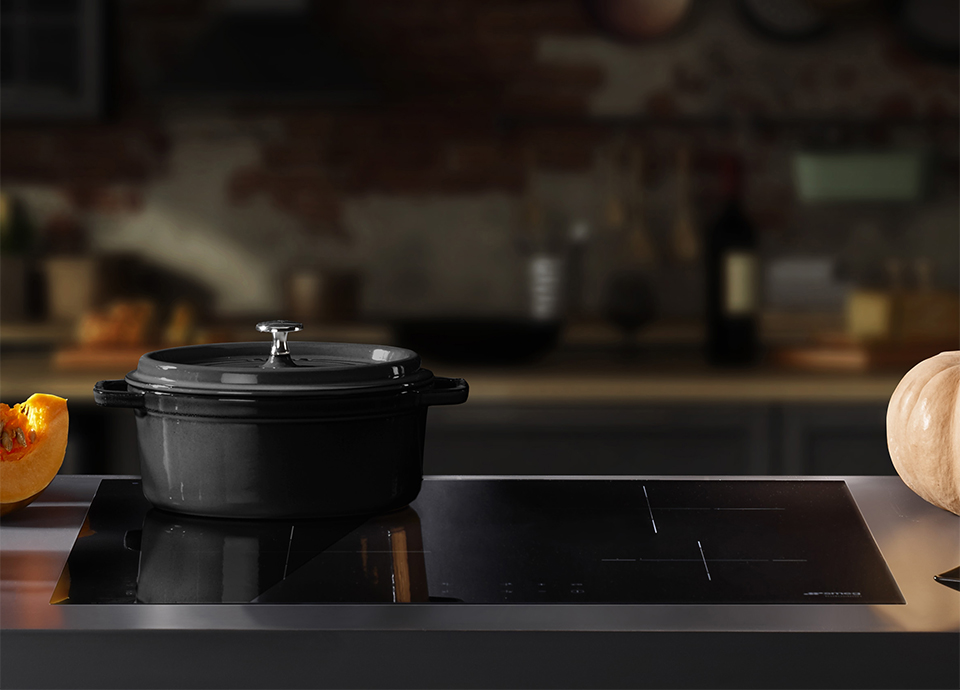
FAQ
Why does cast iron smoke more on induction than other cookware?
Cast iron tends to smoke more because it heats up rapidly on induction cooktops. The high temperatures can cause the oil used for seasoning to reach its smoking point quickly, especially if the oil has a low smoke point or if the pan is not evenly coated.
How can I prevent my cast iron from smoking on an induction cooktop?
To prevent smoking, use oils with higher smoke points and gradually increase the heat. Ensure the pan is well-seasoned and has a flat bottom for even heating. Regularly rotate the pan during cooking to distribute heat evenly.
Is cast iron suitable for induction cooking?
Yes, cast iron is suitable for induction cooking due to its ferromagnetic properties. However, it's important to manage the heat carefully to prevent smoking and ensure consistent cooking results.
For additional tips on avoiding food sticking and other common issues, visit our guide on how to avoid food sticking.

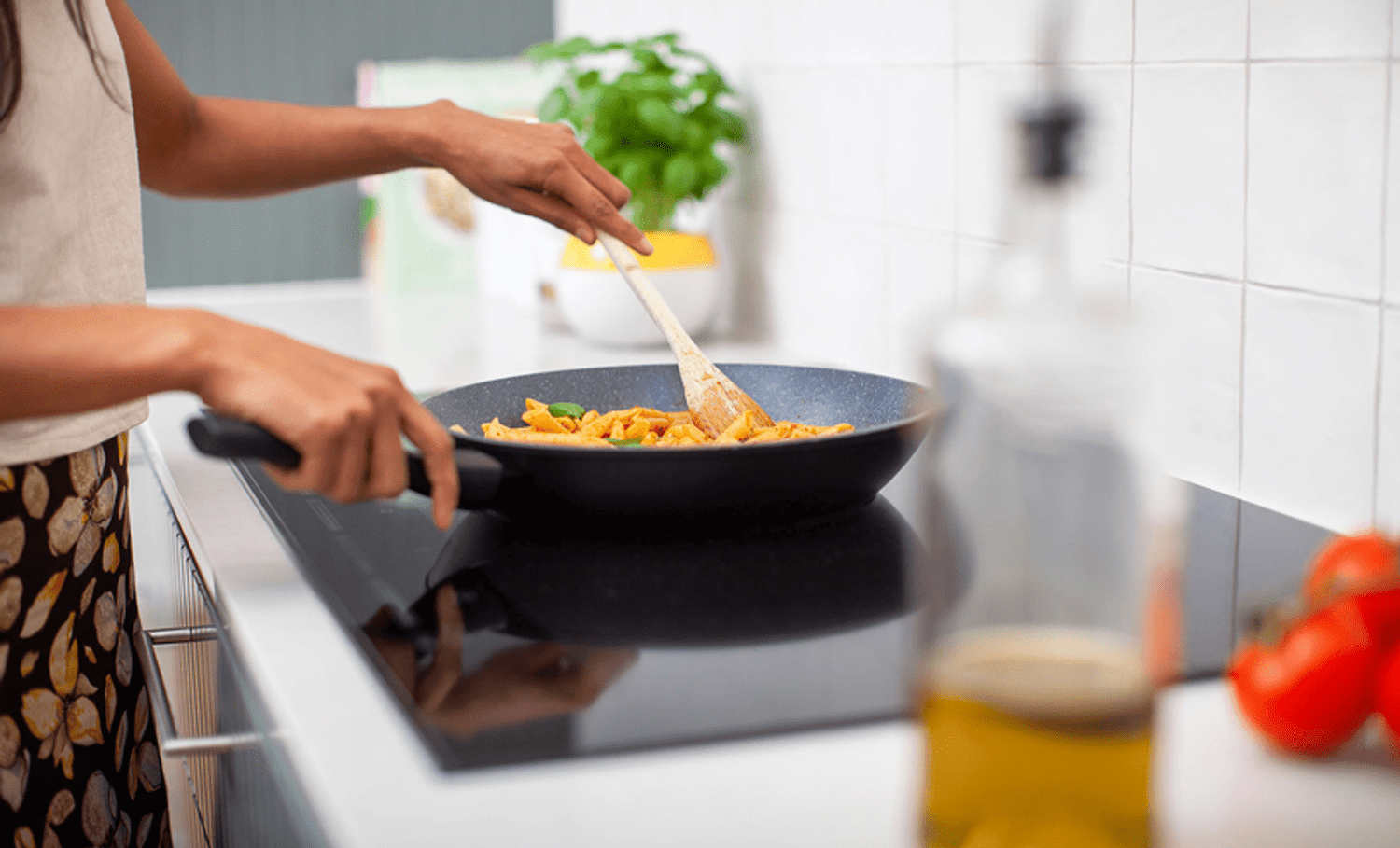


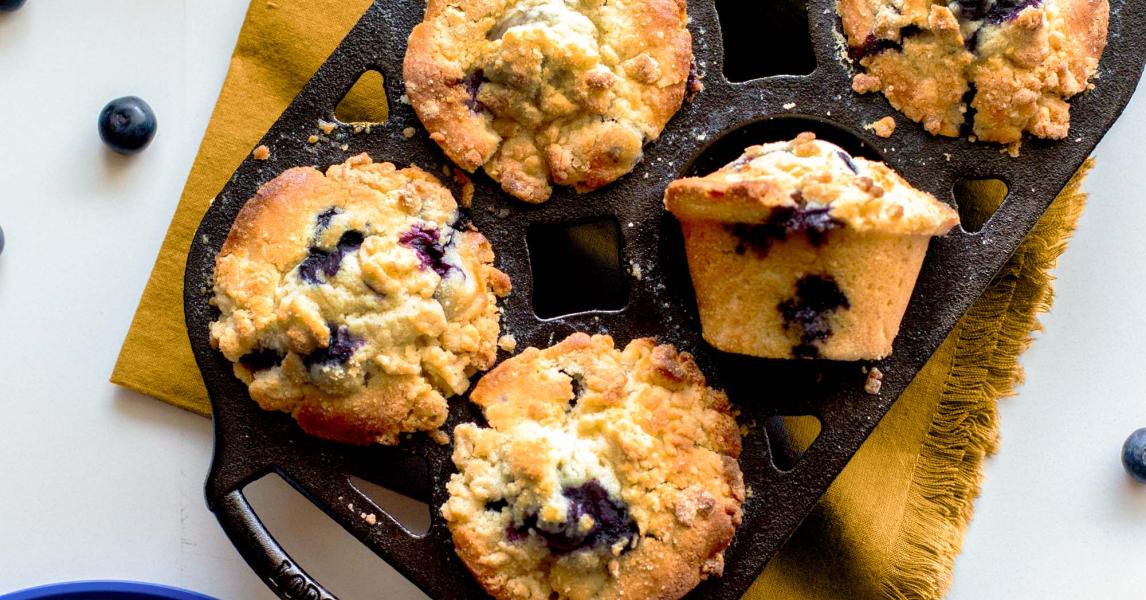
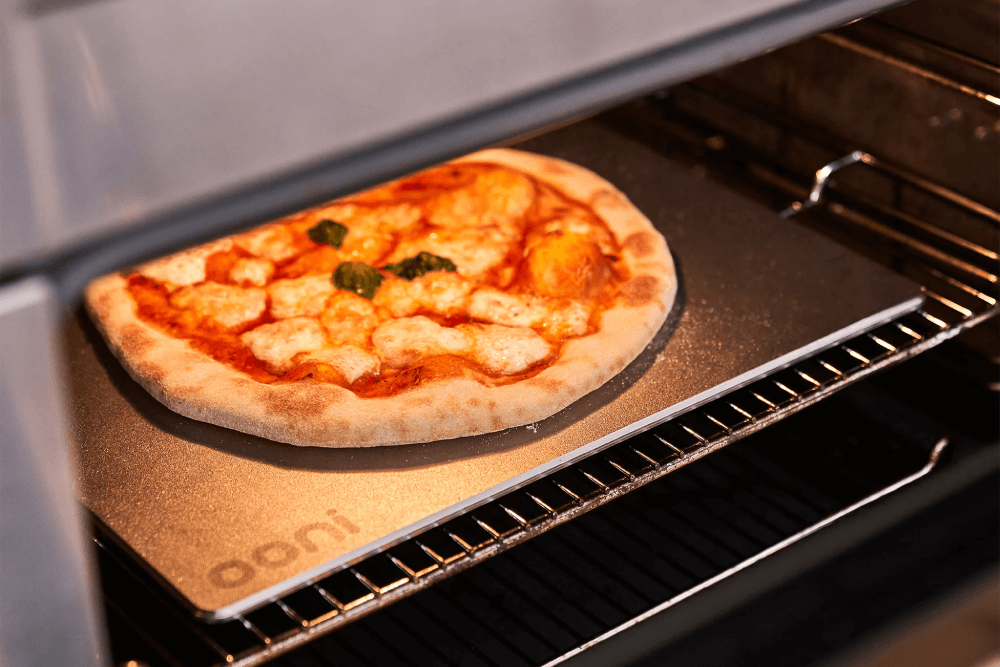
Leave a comment
This site is protected by hCaptcha and the hCaptcha Privacy Policy and Terms of Service apply.